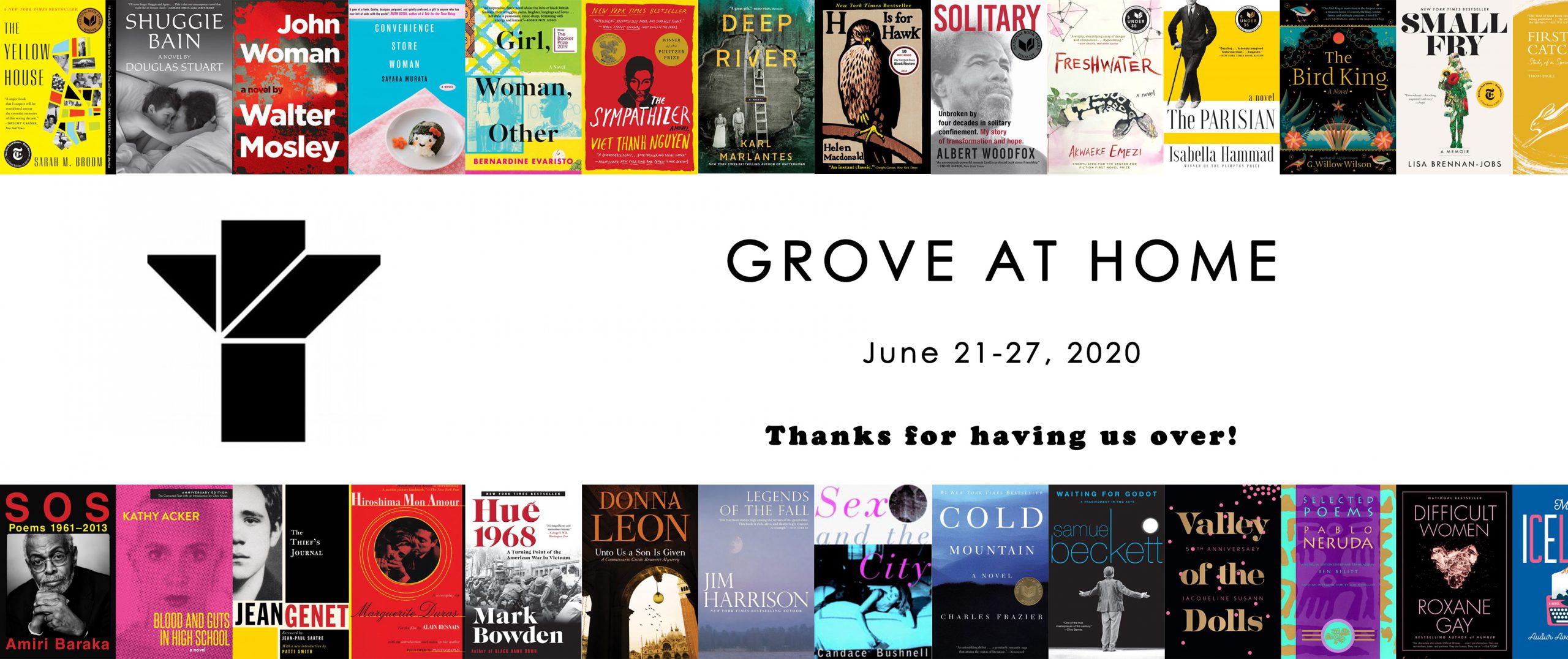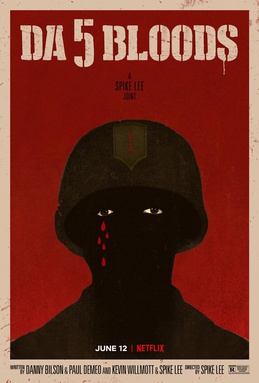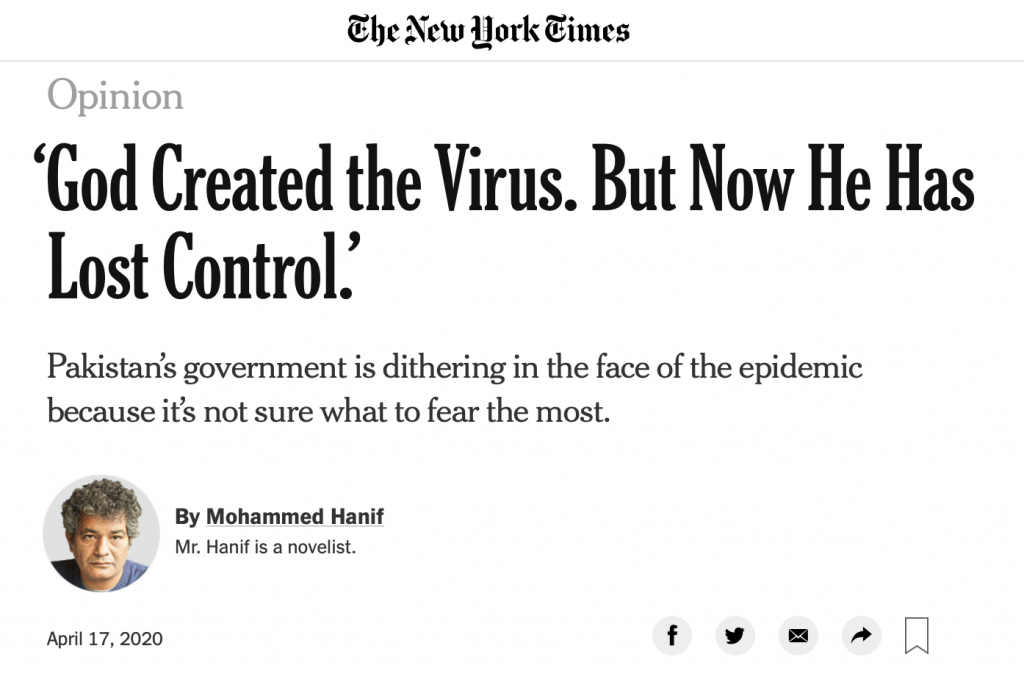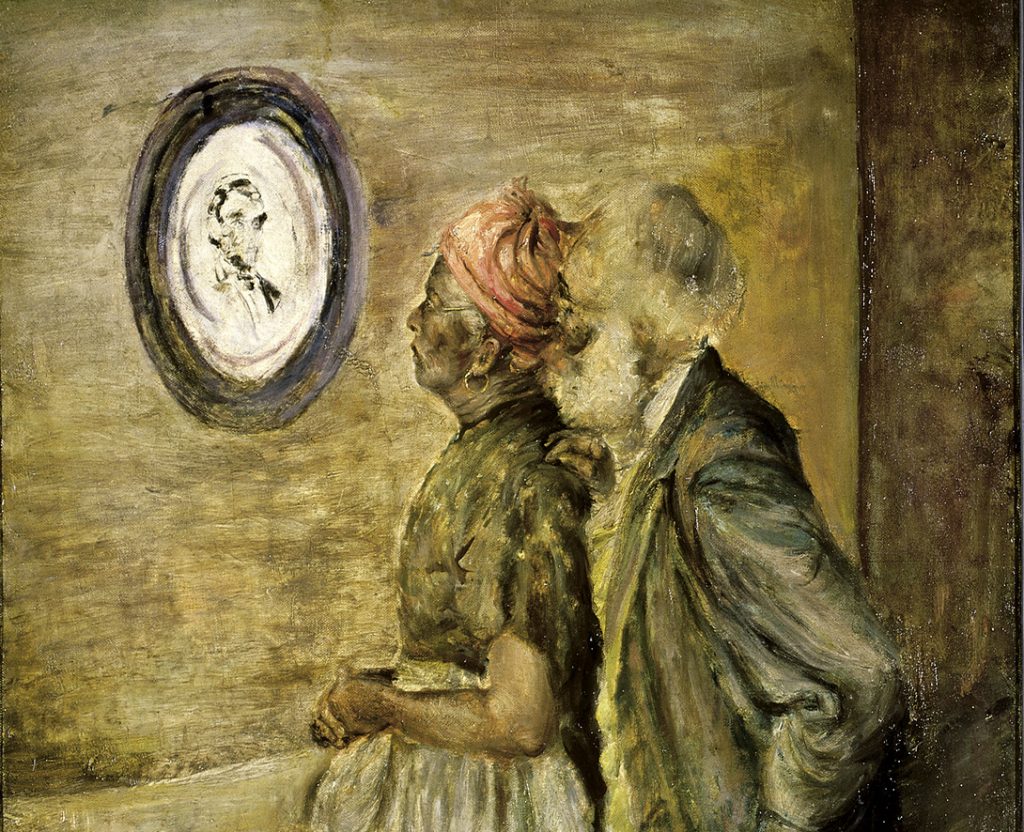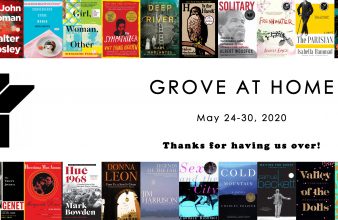News Room
Welcome to Grove at Home!
Every weekday, from now until we’re all out of the house again, we’ll be sharing a couple of links — some fresh, some from the vault — to say hi, remind you to keep reading, and let you know what’s on our minds.
Friday, June 26
Roxane Gay on George Floyd and the struggle for racial justice
The United States and the world continue to struggle toward racial justice in the wake of George Floyd’s killing at the hands of Minneapolis police officers. Two weeks ago, shortly after Floyd’s death, the peerless Roxane Gay — one of America’s most beloved intellectuals, and a frequent, trenchant commenter on race (among many other subjects) — appeared on Canadian television to share her perspective on the movement for justice that has arisen in the wake of Floyd’s death. “It’s time to stop kneeling. These symbolic gestures, I just no longer find them moving.”
Viet Thanh Nguyen on “Da 5 Bloods” in the New York Times
Last week, we shared a link to Viet Thanh Nguyen’s live-tweeting of Spike Lee’s latest film, Da 5 Bloods. In the end, Nguyen was so sharp a viewer and so incisive a critic of that movie that the New York Times asked him to turn his reflections into full-fledged review. He did, and it’s a revelation.
“‘Da 5 Bloods’ clearly aspires to be a movie that jabs at American racism and imperialist warmongering, but whereas it succeeds at the former, it fails at the latter. Why? In putting Black subjectivity at the center, Lee also continues to put American subjectivity at the center. If one can’t disentangle Black subjectivity from dominant American (white) subjectivity, it’s impossible to apply a genuine anti-imperialist critique… This is not an argument for more Vietnamese inclusion. It’s a demand that we recognize how decolonization and anti-imperialism are impossible if we keep reiterating the imperial country’s point of view, even from the minority perspective.” Continue reading…
“Writ in Water”: Allen Ginsberg and Bob Dylan visit the grave of Jack Kerouac
It’s hard not to be moved by this astounding 1975 footage of poet Allen Ginsberg visiting the town of Lowell, Massachusetts with his friend, epochal songwriter (and now Nobel laureate) Bob Dylan, to visit the grave of one Lowell’s proudest native sons — their friend, novelist Jack Kerouac. There’s so much that’s wonderful here: Ginsberg chatting with the working-class kids of Lowell about what God looks like, describing the grave of John Keats (a quarter-century later, Ginsberg’s friend Gregory Corso would be buried in an adjacent plot at the same cemetery), and Dylan asking Ginsberg, in a somewhat intense form of small-talk, “You ever been to Chekhov’s grave?”, to which Ginsberg gamely replies, “No, but I’ve been to Mayakovsky’s, in Moscow.”
Thursday, June 25
Larry Kramer: “I deserve a little fucking respect for what I have done”
Today would have been the eighty-fifth birthday of the fearless, irascible, ferocious, brilliant Larry Kramer, who died late last month. An author who first rose to prominence when he wrote the screenplay for Ken Russell’s 1969 adaptation of D.H. Lawrence’s Women in Love, Larry found a struggle worthy of his boundless energy — and his unusual gift for wrathful eloquence — in the fight against AIDS, the epidemic illness that began ravaging gay communities in the early eighties. He was a co-founder of Gay Men’s Health Crisis, one of the earliest anti-AIDS organizations (this Tuesday will be GMHC’s thirty-eighth birthday), and later of anti-AIDS direct action group ACT UP. Larry’s 1978 novel Faggots offered a satirical vision of a particular gay milieu, rife with excesses; 1985 saw the premier of his play The Normal Heart, a dramatization of the founding of GMHC that offers a far soberer look at a community waging pitted battle against an as-yet-poorly-understood disease. Today, for all their differences in tone, both books are regarded as classics.
When Larry died last month, we shared a number of videos in remembrance of him — you can see them all right here.
In another powerful video, shown here in an edit assembled by Now This, Larry fan be seen at a 1991 meeting of ACT UP, decrying the current state of the anti-AIDS movement.
Lost Horizon, the Musical
Larry was a lion, a powerful advocate for safety, decency, health, and community whose adversaries came to respect him enormously. But he was also a guy with a good sense of humor about himself — as powerfully as he rose to his dire historical moment, he was never one to cower from his own foibles. And it’s in this spirit of heroism that can withstand some gentle ribbing that we share one of the lower points of Larry’s career: the 1973 musical re-envisioning of Frank Capra’s 1937 classic Lost Horizon. Despite what anyone would call an impressive gathering of talent — a cast that included John Gielgud and Liv Ullman, and a screenplay written by Larry — we may safely describe the movie as a “flop.” A look at the trailer may reveal some of the reason:
Larry on “Emerald City”
In the late seventies, a small team working in the burgeoning world of cable TV began producing “Emerald City,” which billed itself, simply, as “the world’s first television show for gay men and women.” An early New York Times review called the show “impressively accomplished.” In 1977, shortly before the initial publication of Faggots — and years before “AIDS” became a household word — Larry appeared on the program to discuss his work.
Wednesday, June 24
Mohammed Hanif, H.M. Naqvi, and Kamila Shamsie discuss the future of Karachi
In 2016, three of the biggest names in world literature with a vital connection to Pakistan — Mohammed Hanif, H.M. Naqvi, and Kamila Shamsie — took the stage in Berlin to participate in “Vision 2030: Authors and Scientists on the Future of Cities,” a series of discussions hosted by the Berlin International Literary Festival. “The way you approach a megalopolis,” Naqvi observes, “is different from the way you approach a place like Vienna.” Of the city where his siblings still can’t believe he wants to live, Hanif observes, “Monday can be completely peaceful, and Tuesday the whole city is shut down. And by Thursday we’re back in partying mode again. So that can all happen within one week.” Shamsie comments on much, including the city’s dynamic of constant change, as well as “structures of fear… structures of class… questions around gender,” before noting, “I wouldn’t say by any stretch of the imagination that I know the whole city.” It’s a fascinating conversation, clocking in at under twenty minutes — and, as we’re all being understandably cautious about travel, another way to get a small glimpse at one of the world’s great cities. Lastly, a note: panel moderator Omar Akbar offers his comments in German, but all three panelists speak English.
Mohammed Hanif on the Lockdown in Karachi
We get a different view of Karachi in an excellent piece Mohammed Hanif wrote for the New York Times a few months ago, just as the global Covid lockdown was starting. Casting a keen eye around the city where he has lived for more than two decades, Hanif looks to Karachi’s strengths and vulnerabilities, its particularities and commonalities. Most of all, he looks to the subtle interplay between religious devotion and epidemiological scruples, deeply cognizant of the powerful traditions and urgent concerns underlying both.
“And so last month, as the first Friday after the coronavirus’s arrival in Pakistan approached, the government dithered: Can you close the mosques during an outbreak? You can shut down McDonald’s — yes, even home deliveries — but the mosques? Wouldn’t that be like declaring war on God?” Continue reading…
Jill Watts discusses The Black Cabinet on NPR
Poker nights that shaped history, the slow and deliberate evolution of anti-discrimination laws, and the indomitable Black woman whose friendship with Eleanor Roosevelt helped shape modern America — these are among the fascinating subjects covered in the interview with scholar and author Jill Watts that aired yesterday on NPR’s All of It, hosted by journalist and author Alison Stewart (whose resume, as Watts notes, includes the acclaimed book First Class, as well as work for CBS News, ABC News, and, as those who were watching cable in the early nineties may remember, MTV News). Give it a listen: you’ll learn a lot.
Tuesday, June 23
“Satire is… a bitter pill but you coat it with a nice film of sweetness”: Elnathan John discusses his work
If you don’t know the writing of Nigeria’s Elnathan John, you should. One of the leading voices in contemporary Nigerian writing, the lawyer, columnist, and novelist has attracted a devoted following with his refined wit, sharp analysis, and dedication to presenting his stories with stark candor. This short video, produced a few years ago by the German public broadcaster Deutsche Welle, can tell you more.
Ian Black on Elizabeth F. Thompson and “the death-knell” for justice after WWI
Since its release in April, Elizabeth F. Thompson’s How the West Stole Democracy from the Arabs has been making waves among historians, scholars, and readers everywhere with an interest in learning how the Middle East came to look the way it does. To the list of Thompson’s enthusiastic admirers we can now add none other than former Guardian Middle East Editor Ian Black, who offers a terrific reading of Thompson’s “meticulously-researched” account in a new write-up at the Levant News.
“Anniversaries provide opportunities for reflection on both the past and present, and the recent centenary of the San Remo conference was full of thought-provoking reminders about the Middle East in its historic transition from Ottoman rule to the Mandate system for Syria, Iraq and Palestine. The Allied conference was held from 19-26 April 1920 in a villa on the Italian Riviera. Britain and France agreed to recognize the provisional independence of Syria (then including Lebanon) and Iraq (Mesopotamia), while claiming mandates to govern them until they were able to ‘stand alone.’” Continue reading…
2 of the Angola 3: Albert Woodfox in conversation with Robert King
The Angola Three: three men, all members of the Black Panther Party, who met at the Angola Prison (aka the Louisiana State Penitentiary) and forged a powerful friendship. Their names: Herman Wallace, Robert Hillary King, and Albert Woodfox. They endured almost inconceivable hardship: King spent twenty-nine years in solitary confinement, Wallace and Woodfox more than forty years each. (United Nations anti-torture statutes prohibit the imposition of solitary confinement for periods longer than fifteen days.) All three were, eventually, released. Herman Wallace, sadly, died of liver cancer just three days after walking to freedom. Robert King was released in 2001 after his conviction was overturned. And Albert Woodfox was released in February 2016. The memoir Woodfox wrote of his years in confinement, Solitary, has been greeted as instantly indispensable, and named a finalist for the Pulitzer Prize and National Book Award. Recently, filmmaker Kelly Saxberg produced a short video in which Woodfox and King talk, discussing their years of shared struggle and their lives today. It’s guaranteed to be the most powerful thing you watch today.
Monday, June 22
Kelli Jo Ford reads from Crooked Hallelujah
In prose at once lush, tough, and emotionally resonant, Crooked Hallelujah — the debut novel from Plimpton Prize winner Kelli Jo Ford, coming July 14 — tells the story of Justine, a mixed-blood Cherokee woman raised by strong, complicated matriarchs, and now parenting her own daughter, Reney, through a move from eastern Oklahoma’s Indian Country to Texas, in search of a better life amid the mid-eighties Texas oil boom. In this video shot for the American Booksellers Association, Ford reads a short passage from the book, beginning just a few paragraphs after it starts, set in 1974, when Justine is just fifteen years old, and living with her holy-roller mother, Lula.
Lewis Lapham Talks to Ed Achorn about Lincoln’s Second Inaugural Address
Last week, Ed Achorn, author of Every Drop of Blood: The Momentous Second Inauguration of Abraham Lincoln, had a conversation with legendary editor and author Lewis Lapham for The World in Time, Lapham’s own podcast hosted by the magazine he edits, Lapham’s Quarterly. Lapham calls Achorn’s book “as fine a work of the historical imagination as it has ever been my good fortune to read.” In Ed’s hands, the many small stories from the day of Lincoln’s wartime inaugural — from Frederick Douglass’s warm appreciation, to the hungover vice president’s crankiness — come together in a masterful, subtle narrative.
“Lincoln himself expected the speech ‘to wear as well as—perhaps better than—anything I have produced; but I believe it is not immediately popular.’” Read more and listen…
“To find a way to free the people from colonial alienation”: Frantz Fanon’s daughter speaks
In this video produced for the “Critical Voices in Critical Times” series, Mireille Fanon-Mendès-France, an expert on people of African descent and the daughter of the pivotal Martinican psychiatrist, philosopher, and revolutionary Frantz Fanon, speaks about her father’s context and legacy, the difference between liberation and emancipation, the possibility of decolonial universality, and much more.
